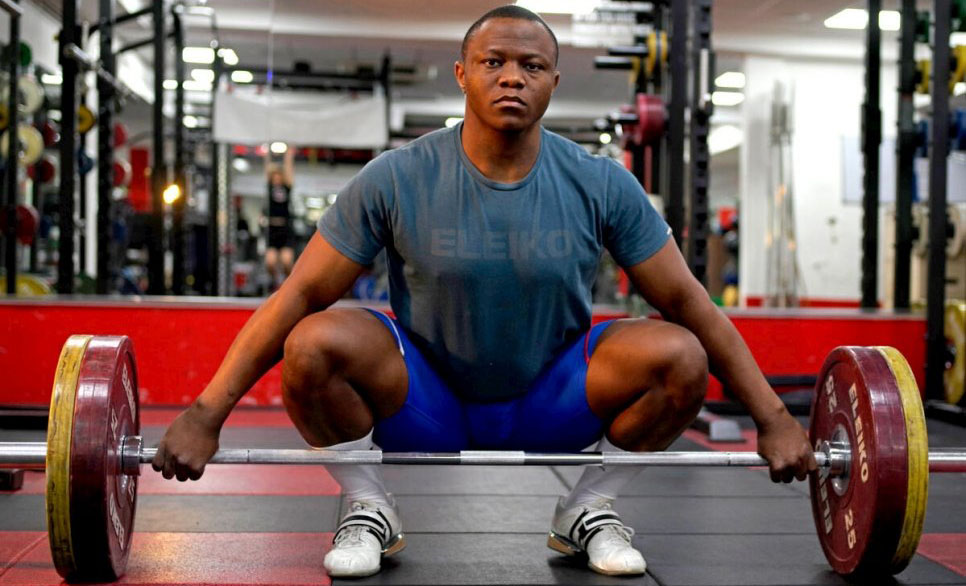A symbol of hope and strength, 29 refugee athletes take the stage once again and keep their dreams alive at the Tokyo 2020 Olympics, representing not a country, but millions of forcibly displaced people, competing in 12 Olympic disciplines.
“They are an exceptional group of people who inspire the world. UNHCR is incredibly proud to support them as they compete at the Tokyo Olympics. Surviving war, persecution and the anxiety of exile already makes them extraordinary people, but the fact that they now also excel as athletes on the world stage fills me with immense pride,” said UN High Commissioner for Refugees Filippo Grandi, who honored these inspiring individuals as they showcase their strength and determination in the field of sports.
“It shows what is possible when refugees are given the opportunity to make the most of their potential. These athletes embody the hopes and aspirations of the more than 80 million people around the world who have been uprooted by war and persecution. They serve as a reminder that everyone deserves the chance to succeed in life.”

Members of the Refugee Olympic Team meet UN High Commissioner for Refugees Filippo Grandi and IOC President Thomas Bach at the Olympic Village in Tokyo. © Stephen Pattison
One of the inspiring refugee athletes joining this year’s line-up is Cyrille Tchatchet, who sought refuge in the UK back in 2014. In his battle with anxiety and depression, his passion for weightlifting saved him from some of his lowest moments in his life and what inspired him to dream bigger. Continuing to train, he soon started entering British regional competitions, and went on to set records and win titles for weightlifting from 2017 to 2019, after receiving his refugee status.
Tchatchet drew inspiration in his darkest times and wanted to provide the same support to his community as his way of giving back. Deciding to pursue nursing, he balanced his weightlifting training with his studies, eventually graduating with a first-class degree in Mental Health Nursing from Middlesex University.
With words of praise, Tchatchet’s tutor and a senior lecturer at the university, Lawrence Dadzie, shared that Tchatchet’s refugee background and his struggles with depression have given him empathy for his patients. “He’s able to understand people who suffer from this condition, he’s able to understand them better. And he also feels that he can also give something back.”, Dadzie said.
A nurse by day and a weightlifter by night, Tchatchet will be representing the millions of forcibly displaced people in the Olympics. He says the Refugee Olympic Team is “… a team of hope. My message to other refugees is to believe, to be hopeful,” he said. “Today might be difficult but the future might be brighter.”, he shared.
In Tokyo, Tchatchet will be competing in the 96kg weightlifting division. Standing alongside the other refugee athletes, Tchatchet sends a message of hope and inspiration to encourage the more than 82 million people displaced across the globe.
During the Tokyo 2020 Olympics Opening Ceremony, Yusra Mardini was one of the flagbearers for the Refugee Olympic Team. She once swam for life and safety despite seemingly insurmountable currents, fleeing the conflict in Syria in 2015. Now swimming for honor, she is back on her second year of participating in the Olympics as part of the Refugee Olympic Team to compete in the 100-meters freestyle swimming competition at the Tokyo Olympics. “After the pain, after the storm, come calmer days”, she shared.
Yusra advocates for refugees globally to shed light on their resilience and determination to rebuild lives and positively contribute to host communities. In 2017, she has become the youngest person ever to be appointed a Goodwill Ambassador by UNHCR, aged 19, becoming a powerful voice for the forcibly displaced across the world.
When she was 8, Rose Nathike Lokonyen fled violence in South Sudan and grew up in Kakuma refugee camp in northern Kenya, where her athletic prowess was first discovered. On 5 August 2016, she carried the flag in Rio for the first Refugee Olympic Team in history. After competing in the Tokyo 2020 Olympics, she is one of three refugee athletes who will be heading to Canada, thanks to the country’s trailblazing athletic scholarship programme.
***
Cyrille, Yusra, and Rose are just among 29 refugee athletes who are competing in 12 Olympic sports in the Games, sending a powerful message of solidarity and hope to the world and bringing further awareness to the plight of over 80 million displaced people worldwide. This is only the second time a Refugee Team has participated in the Olympic Games, following the first at the Rio Olympic Games in 2016.
Together with the International Olympic Committee (IOC), the Olympic Refuge Foundation (ORF), the International Paralympic Committee (IPC) and other partners, UNHCR is leading the global call for a world in which all displaced people, including those with disabilities, can equally access and participate in sport. As part of its more than 25-year partnership with the IOC, UNHCR works with the IOC and the ORF to harness the power of sport to help create a world where every person forced to flee can build a better future.
Share on Facebook Share on Twitter


